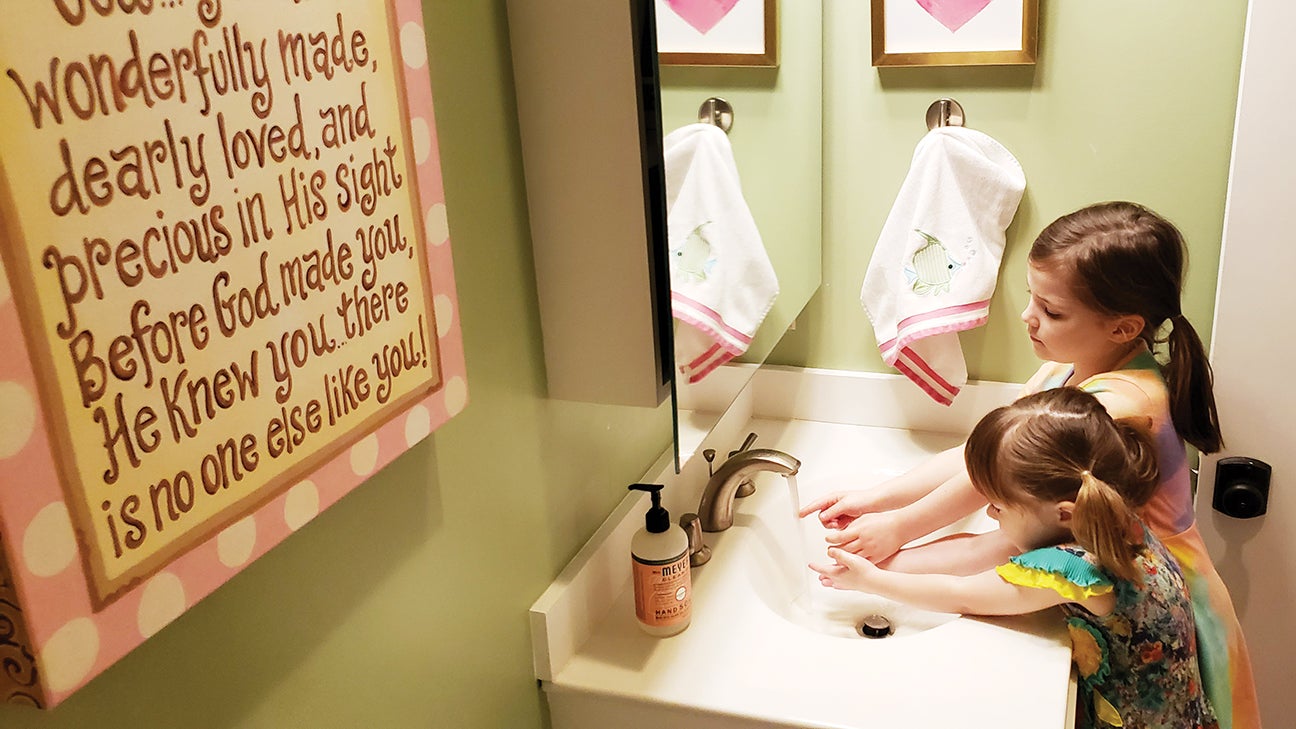How to talk to your children about coronavirus
Published 5:34 pm Wednesday, March 18, 2020

- Photo by Donna Campbell Gracie Reynolds, 5, helps her 3-year-old sister, Bea, wash her hands in their bathroom Wednesday. The girls’ mother explained to them that they have kid germs and need to wash well so they don’t give them to their sister, Addie, who is 7 months old and should only have baby germs.
Some of the best ways that parents can calm children’s fears about the coronavirus scare is remain calm, practice good hygiene and use common sense, according to local psychologists and counselors.
Today’s virus-cautious environment is taking a toll on parents, and it can affect their children in a negative way, said Dr. Richard Balkcom, counselor for the Brookhaven and Lincoln County school districts.
“Children pick up on all of our emotions and feelings, responses and activities,” Balkcom said. “The calmer and more composed we can be in this situation will be reflected in our kids as well.”
“Educating them on the reasons why we wash our hands or use hand sanitizer, and how we do things in public places and where we feel secure is important.”
Anne Houston Craig, a Brookhaven psychologist, said parents should tell their children, in a kid-friendly manner, only what they need to know.
“Parents should emphasize to their children that they are safe and it is not their job to worry,” Craig said.
“Let them know there are adults who are making decisions on how to keep everybody safe.”
Craig recommends parents try to keep children from watching the news and to stay off of social media.
“You don’t know if they’re getting the news from a reputable source or from someone’s opinion,” Craig said.
She said some of her child and teen clients have admitted they’re scared.
“Let children know it’s OK to express their fears,” Craig said.
Craig and Balkcom gave more tips:
• Direct your children and teens to creative activity, such as drawing or other activities.
• Try to keep them on a regular routine.
• Play board games with them.
• Read books.
• Spend time with kids rather than taking them to a playground.
Good hygiene, such as washing hands frequently, is important to help avoid the virus. COVID-19 is highly contagious, and can be fatal to people over 65 and those with underlying health problems.
The CDC is warning the public to wash hands with soap and water often, for 20 seconds each time, or use hand sanitizer if available.
Stay-at-home mom speaks up
Sarah Reynolds has three girls: Gracie, 5, Bea, 3, and Addie, 7 months old. She and her husband Asa, a local surgeon, began emphasizing good hygiene with the kids after their youngest was born.
Reynolds said she stocked up on cheap hand sanitizer after Addie’s birth.
“We told the kids that Addie has baby germs and they have kid germs, and it could hurt her if they gave Addie kid germs.”
Reynolds said hand sanitizer is a novelty for the toddlers. She keeps a bottle by her couch and in the center console of her van in case she has to run to the bank or pick up groceries or prescriptions.
Her kids are too young to be scared, she said.
Staying away from other children is the hardest part of virus precaution, Reynolds said.
“We went for a walk the other day and I had conversations with other moms while we kept a safe distance. I didn’t realize how touchy-feely the girls are. They kept wanting to give their friends a hug.”
“Keeping a distance is for the greater good,” Reynolds said. “The kids will understand when they’re older.”
The family has a babysitter who watches the girls one day a week while Reynolds runs errands. The sitter is a senior citizen.
“We don’t want to make her sick,” Reynolds said. “The girls are very aware of that.”
Story by Robin Eyman





